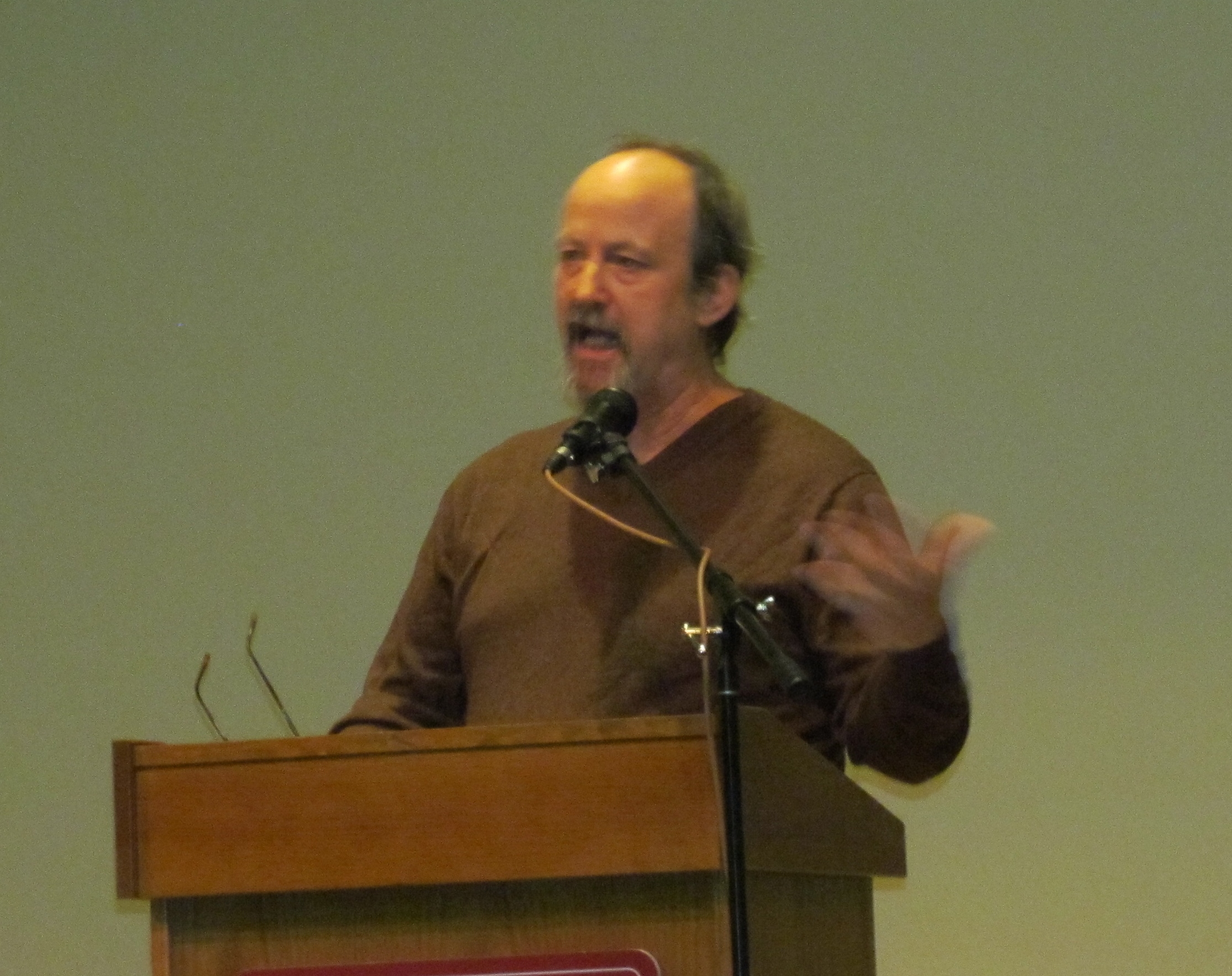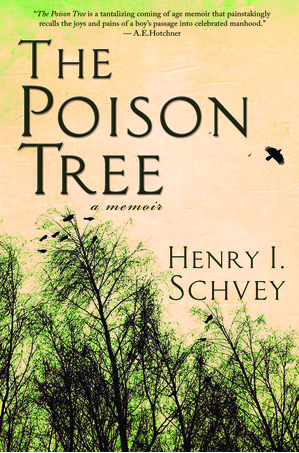Missouri Author Daniel Woodrell Talks About Books, Films, Formidable Women and Writing
Share the post "Missouri Author Daniel Woodrell Talks About Books, Films, Formidable Women and Writing"
by Donna Volkenannt
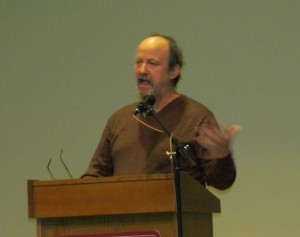
Daniel Woodrell
On a windy Thursday night in late February, critically acclaimed Missouri author Daniel Woodrell read from his novels and talked about writing. A crowd of about 200 students, faculty members, writers and book lovers attended Woodrell’s presentation on the campus of St. Charles Community College.
During Woodrell’s introduction, a professor from the college announced that Woodrell’s latest novel, The Maid’s Version, had just been nominated for the LA Book Award in the Fiction category.
Before beginning his readings, Woodrell mentioned that not many of his bios include the fact that he grew up in St. Charles. His family moved to the area so his father could attend night school at Washington University. Woodrell reminisced about growing up in the “Frenchtown” section of the Missouri River city, where he was taught by “overqualified teachers” at Lincoln Elementary School.
His fondness for his childhood years came through vividly as he spoke about sledding down steep hills near the all girls’ Lindenwood College — now the co-ed Lindenwood University — and visiting the Pine Room on Perry Street with his dad. Woodrell moved from the area in 1968.
A hush fell over the auditorium when he began reading the first chapter of Winter’s Bone, a novel which has been described by the Philadelphia Inquirer as “A stunner . . . . 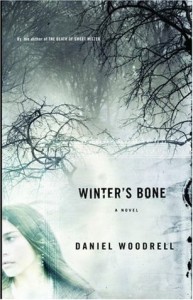 Contemporary fiction at its finest.” The passage he read was a beautifully rendered description of the sixteen-year-old main character, Ree Dolly, and her backwoods Ozark home where the story takes place.
Contemporary fiction at its finest.” The passage he read was a beautifully rendered description of the sixteen-year-old main character, Ree Dolly, and her backwoods Ozark home where the story takes place.
After the Winter’s Bone reading, Woodrell explained his reasons for writing his most recent novel, The Maid’s Version, which is based on an actual event. In part, he wrote The Maid’s Version to show “a broader swath of humanity and a broader section of the Ozarks region.” He also mentioned The Maid’s Version is more autobiographical than his previous novels.
After his readings, he patiently answered questions from the audience.
A faculty member asked if he considers himself a “Feminist writer” because his books have such strong female characters. He laughed when he answered, “I have been surrounded by formidable women all my life,” including his mother, both grandmothers, and his wife. So it is no surprise that his female characters have such powerful presences in his works.
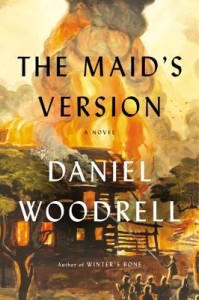 Woodrell’s favorite authors growing up include another Missouri writer — and his mom’s favorite — Mark Twain. Woodrell admitted that in his younger years he also devoured paperback novels written by Kenneth Roberts, Carter Brown and Mickey Spillane. His dad favored novels written by John D. MacDonald, so Woodrell read a lot of those as well.
Woodrell’s favorite authors growing up include another Missouri writer — and his mom’s favorite — Mark Twain. Woodrell admitted that in his younger years he also devoured paperback novels written by Kenneth Roberts, Carter Brown and Mickey Spillane. His dad favored novels written by John D. MacDonald, so Woodrell read a lot of those as well.
He displayed his candor and wit after someone asked how he felt about his two books which were made into the films, Ride with the Devil and Winter’s Bone. He replied he was “pleased that neither movie threw the book away.”
He shared that, as part of his writing and editing process, he writes and edits every day. He uses the old Hemmingway trick: Don’t finish your last sentence. Know what’s next but don’t write it down. The following day, read up to where you stopped writing and start from there to “juice you forward.” He also added he has gone back to writing in longhand before typing his manuscripts, which he feels helps with pacing.
His advice for beginning writers was to “write about whatever is interesting to you.”
According to Woodrell, his career started off slowly. His publisher told him his earlier books “sold like a poet’s.” His eighth book sold only 5,000 copies, but he liked writing and valued the process, so he kept at it.
As I stood in the long line waiting to have my books signed, I realized how fortunate I was to have heard such a talented and generous writer read from his works. Even more, it was a gift to be able to gain insight about the craft of writing from Woodrell, who has been praised in the New York Times Book Review for his “Old Testament prose and blunt vision,” heralded by the LA Times as a “Backcountry Shakespeare” and described by Dennis Lehane as “the least-known major writer in the country right now.”
That’s quite an impressive accomplishment for a young boy who grew up sledding down steep hills not far from the Missouri River in St. Charles.

